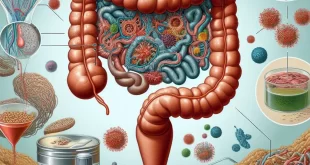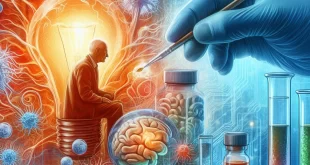Introduction:
Food plays a vital role in our mental health. Scientific studies have shown that certain foods and beverages can affect our mood and well-being. In this article, we’ll take an in-depth look at the foods and beverages that can cause stress, anxiety and depression, highlighting the underlying mechanisms and providing real-world examples, based on scientific research.
- Caffeine: Caffeine, found in coffee, tea, energy drinks, and some sodas, is a commonly consumed stimulant. Excessive caffeine consumption can increase stress and anxiety levels. A study published in the journal “Journal of Psychopharmacology” showed that high doses of caffeine can cause a significant increase in anxiety in sensitive people. Examples of caffeinated beverages include espressos, cappuccinos, and energy drinks.
- Refined sugars: Refined sugars, found in candies, baked goods, and sugary drinks, can cause rapid fluctuations in blood sugar, which can affect mood and energy. A study published in “The American Journal of Clinical Nutrition” showed an association between high intake of added sugars and an increased risk of depression in women. Examples of foods high in refined sugars include sodas, candy bars and industrial cakes.
- Fried foods and saturated fats: A diet high in fried foods and saturated fats can have a negative impact on mental health. A study by researchers at the University of Navarre, Spain, found that frequent consumption of fried foods was associated with a higher risk of depression among study participants. Saturated fats can contribute to inflammation in the body, which can affect brain function and increase the risk of depression. Examples of fried and fatty foods include French fries, donuts, and high-fat processed foods.
- Alcohol: Excessive alcohol consumption can have a detrimental impact on mental health. Alcohol is a central nervous system depressant, which means it can make symptoms of anxiety and depression worse. A study published in the journal “Alcoholism: Clinical and Experimental Research” showed that chronic alcohol consumption was associated with a higher prevalence of anxiety and depression. It is important to note that some people may experience a slight short-term mood improvement after consuming alcohol, but this is often followed by a deterioration in mood and an increase in symptoms of depression. stress and anxiety.
- Monosodium glutamate (MSG): Monosodium glutamate, often used as a flavor enhancer in processed foods and ready meals, may trigger stress reactions in some sensitive people. A study published in the journal “Journal of Headache and Pain” reported that MSG can cause symptoms such as headaches, palpitations and anxiety in susceptible individuals. Examples of foods containing MSG include instant soups, ramen noodles, and flavored chips.
- Artificial stimulants: Some artificial food additives such as artificial colors and sweeteners can also impact mental health. A study published in the journal “European Child & Adolescent Psychiatry” found an association between the consumption of artificial food colorings and worsening symptoms of hyperactivity and inattention in children. Additionally, some artificial sweeteners, such as aspartame, have been linked to mood swings and depressive symptoms in some susceptible people.
- Processed and nutrient-poor foods: Processed foods that are high in added sugars, saturated fats, and additives tend to be low in essential nutrients. A study published in the journal “Nutritional Neuroscience” highlighted the link between an unbalanced diet and an increased risk of depression. The researchers found that diets high in processed foods were associated with an increased prevalence of depression. It is important to favor a balanced diet rich in fruits, vegetables, whole grains, sources of lean proteins and healthy fatty acids.
Conclusion:
Food plays an important role in our mental well-being. Scientific studies suggest that certain foods and drinks can contribute to stress, anxiety and depression. Caffeine, refined sugars, fried foods, alcohol, monosodium glutamate, artificial stimulants, and nutrient-poor processed foods have all been linked to adverse effects on mental health.
It is recommended to maintain a balanced diet, limit the consumption of processed foods and favor nutritious foods. Each individual is unique, and it is important to listen to their body and consider their own reactions to food. If you suffer from stress, anxiety or depression, it is advisable to consult a medical professional for appropriate support and personalized advice.
 medjouel.com Study Non Stop
medjouel.com Study Non Stop



